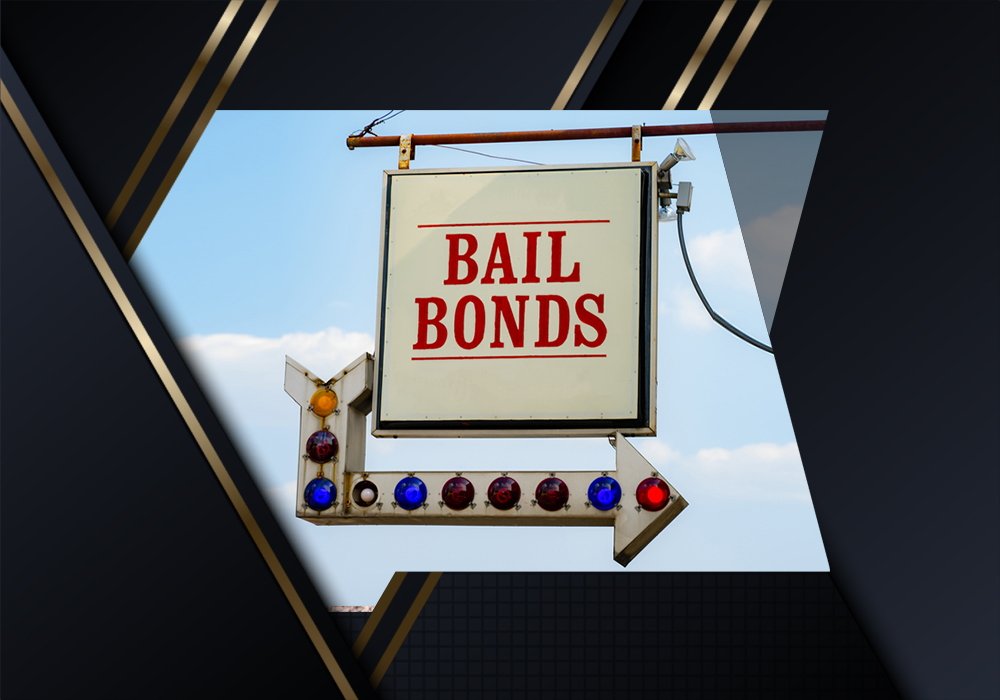Understanding the Refine of Safeguarding a Bail Bond: What You Need to Know
Safeguarding a bail bond can be a complicated procedure. It entails understanding various facets, from the sorts of bonds available to the associated prices. People usually overlook essential information that can influence their circumstance. The steps to acquire a bail bond call for careful factor to consider and knowledge of obligations. As the process unravels, vital decisions should be made that might influence the result greatly. What should one prepare for when traversing this tough landscape?
What Is a Bail Bond?
A bail bond is an economic contract that permits an apprehended individual to be released from protection while awaiting trial. This setup entails a 3rd party, normally a bondsman, who guarantees the court that the person will return for their scheduled court appearances. For this service, the Bail bondsman normally charges a non-refundable charge, frequently a percent of the complete Bail quantity.
Bail bonds serve an important feature in the lawful system, providing a device for accuseds to keep their liberty throughout the pre-trial phase. This can aid them plan for their protection better. The Bail amount is figured out by the court based on numerous variables, consisting of the extent of the violation, the offender's criminal history, and the danger of flight. Inevitably, a bail bond stands for a commitment to promote lawful responsibilities while allowing individuals the chance to continue their daily lives until their court day.
Just How Bail Bonds Work
Bail bonds run via a straightforward process that entails several essential actions. Initially, an accused or their depictive contacts a bail bond representative after an apprehension. The representative assesses the situation, including the Bail amount set by the court and the accused's background. As soon as a decision is made, the agent generally requires a non-refundable fee, normally a portion of the total Bail amount, often ranging from 10% to 15%.
After the cost is paid, the agent secures the Bail by signing an agreement with the court, ensuring that the offender shows up for all arranged court days. If the offender fails to show up, the bail bond agent is accountable for the full Bail amount, leading the agent to look for the accused. Throughout this process, the bail bond representative plays a vital duty in helping with the launch of the accused while taking care of the connected financial risks.
Kinds Of Bail Bonds
Comprehending the numerous kinds of Bail bonds is very important for accuseds and their family members as they browse the lawful system. There are several usual sorts of Bail bonds readily available, each serving a details purpose.
One of the most common is the surety bond, which includes a bondsman guaranteeing the full Bail quantity for a cost. One more type is the cash money bond, where the offender or their household pays the complete Bail amount in money directly to the court.
Residential or commercial property bonds allow individuals to use realty as security for the Bail amount. In addition, government bonds specify to government situations, usually requiring a higher premium and much more rigid conditions.
Migration bonds are used in situations concerning migration offenses. Each kind of bond has unique treatments and implications, making it essential for those included to understand their options thoroughly.
The Expenses Included in Protecting a Bail Bond
Safeguarding a bail bond entails different expenses that can greatly influence an accused's finances. The major cost is the costs, generally ranging from 10% to 15% of the complete Bail amount set by the court. This premium is non-refundable, despite the situation outcome, representing the bail bond representative's charge for their solutions. Added expenses may consist of administrative fees, which some representatives enforce for processing paperwork, and security demands, where the accused might need to supply properties to protect the bond. In situations entailing greater Bail quantities, the need for collateral becomes a lot more obvious. bail bonds. Additionally, offenders must understand potential expenses associated to missed court days, which can result in more punitive damages. Understanding these prices is vital for defendants and their families, as they can significantly affect the financial problem related to securing a bail how much is it to bail someone out of jail bond
The Refine of Obtaining a Bail Bond
The procedure of getting a bail bond entails a collection of organized steps that begin with the submission of an application. Candidates should additionally consider numerous repayment and collateral alternatives that may be required by the bail bond agency. Understanding these elements is essential for maneuvering with the bail bond system properly.
Application Entry Steps
Navigating the application entry actions for acquiring a bail bond can be uncomplicated when people are well-informed. The first action entails selecting a reliable bail bond company, which often needs study and referrals. When a firm is chosen, the applicant must complete a bail bond application, supplying necessary information such as the accused's information, charges, and Bail quantity. Next, the applicant may need to existing identification and any type of relevant documentation to support the application. After submitting the application, the bail bond business will certainly evaluate the info and evaluate the risk included. A representative will describe the terms and conditions before wrapping up the contract if authorized. This process, while methodical, can differ a little depending on the Bail and the territory bond business.

Repayment and Security Alternatives
When obtaining a bail bond, comprehending repayment and collateral alternatives is essential, as these elements can significantly impact the general expense and regards to the contract. Typically, bail bond companies call for a non-refundable charge, generally a percentage of the overall Bail amount, which functions as their profit. Some business might supply versatile layaway plan, enabling customers to pay in installations. Furthermore, security can be necessary to protect the bond, which might consist of assets like building, vehicles, or other valuables. The type and worth of collateral can influence the find bond's approval and terms. Clients ought to thoroughly review their financial situation and choices to ensure they choose an option that straightens with their budget and situations.
Obligations of the Indemnitor
Steering through the complexities of Bail bonds requires a clear understanding of the obligations of the indemnitor. The indemnitor, usually a family member or friend of the defendant, plays a significant role in the Bail process. This private concurs to presume economic responsibility, making certain that the Bail quantity is paid if the defendant stops working to show up in court. It is necessary for the indemnitor to keep communication with the bail bond agent throughout the process, providing any necessary details and updates pertaining to the accused's circumstance.
In addition, the indemnitor should secure security, which may include home or valuables, to back the bail bond. This security secures the bail bond business against prospective losses - bail bonds. Should the offender stop working to adhere to court requireds, the indemnitor encounters the danger of losing their security and may be held answerable for the whole Bail amount. Therefore, understanding these responsibilities is crucial for the indemnitor's economic stability

Common Myths Concerning Bail Bonds
Many individuals nurture misconceptions regarding Bail bonds, which can complicate their understanding of the Bail procedure. One widespread myth is that Bail bonds are a kind of repayment that assures a defendant's release. In truth, they are an assurance to the court that the defendant will appear for their arranged hearings. An additional usual belief is that just wealthy people can manage Bail. Nonetheless, Bail bondsmen normally bill a percentage of the overall Bail amount, making it obtainable to a wider variety of people. In addition, some individuals assume that Bail is refundable. While the costs paid to the Bail bondsman is not refundable, the Bail amount itself may be returned upon the completion of the case, provided the defendant fulfills all court requirements. Dispelling these misconceptions is crucial bondsman in my area for people passing through the intricacies of the Bail system and ensuring they make notified decisions.
Regularly Asked Questions
Can I Protect a Bail Bond for Someone in Another State?
Securing a bail bond for a person in an additional state is possible, yet it commonly calls for collaborating with a bondsman accredited because state - bail bonds. Each jurisdiction has specific laws that have to be followed throughout this process
What Happens if the Offender Skips Bail?
If an offender skips Bail, a warrant is typically released for their apprehension. The Bail bondsman may also go after healing initiatives, which could entail employing bounty hunters to situate and nail the person.
Are Bail Bondsmen Controlled by the Government?
Bondsman are certainly managed by government authorities. Regulations differ by state, but they commonly call for licensing, adherence to financial techniques, and compliance with regulations to guarantee fair treatment of defendants and their households.
Can I Make Use Of Collateral Aside From Cash money?
Security apart from cash money can frequently be utilized for Bail bonds, depending on the bondsman's policies. Typical choices consist of property, cars, or various other important possessions, which must normally be assessed and set.
What Is the Role of a Co-Signer in a Bail Bond?
If the offender falls short to appear in court, the duty of a co-signer in a bail bond is to assure settlement. This specific approves economic duty, guaranteeing that the bail bond contract is maintained and enforceable.
If the accused falls short to show up, the bail bond representative is liable for the complete Bail amount, leading the representative to seek out the accused. Once a firm is chosen, the applicant should finish a bail bond application, offering crucial information such as the accused's details, costs, and Bail quantity. Generally, bail bond firms need a non-refundable charge, typically a portion of the overall Bail quantity, which offers as their revenue. Numerous people harbor misunderstandings about Bail bonds, which can complicate their understanding of the Bail process. Security other than cash can frequently be used for Bail bonds, depending on the Bail bondsman's plans.